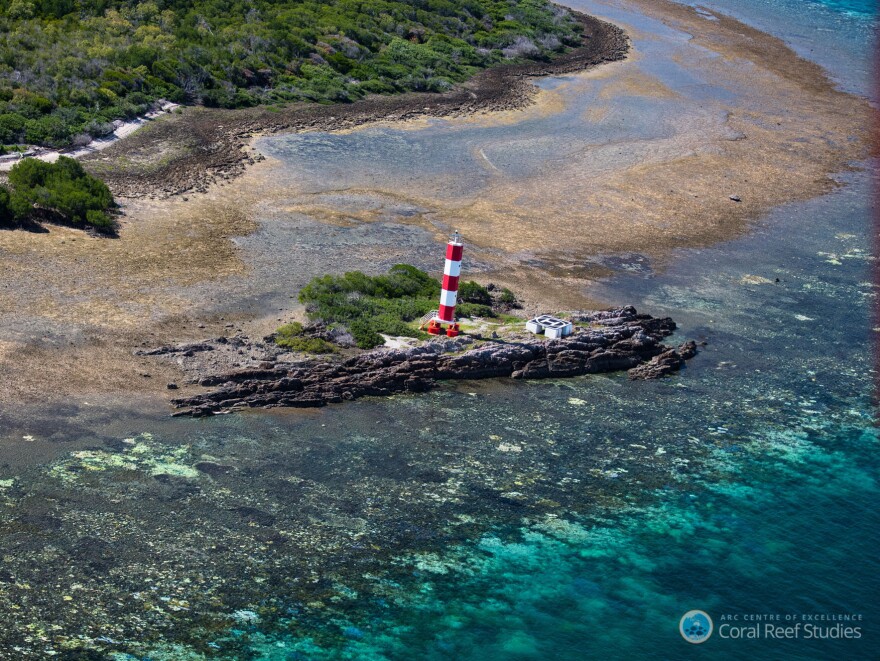Huge areas of the Great Barrier Reef are experiencing "the worst, mass bleaching event in its history" according to Australia's National Coral Bleaching Task Force, which has just completed an aerial survey of the more than 500 individual reefs that make up the northern part of the reef.
Prof. Terry Hughes of James Cook University in Queensland, who took part in the survey, described it as the "saddest research trip of my life." Hughes said "Almost without exception, every reef we flew across showed consistently high levels of bleaching. ... We flew for 4000km (almost 2,500 miles) in the most pristine parts of the Great Barrier Reef and saw only four reefs that had no bleaching."
You can see video from the survey by clicking on this link.
Coral bleaching occurs when the living organisms that make up coral reefs expel the colorful, photosynthetic algae that normally live inside their bodies, and provide them with food. Those algae give coral reefs their color and disappear when the reefs are exposed to stressful climatic conditions, such as temperatures even a few degrees higher than normal.
Bleached corals can recover, but the scientists involved in the project say they fear up to 50 percent of the bleached coral has been destroyed, and the rest could take up to a decade to recover. It is summer in the southern hemisphere, and the Pacific Ocean is warmer than usual because of an El Nino event, but Prof. Justin Marshall, a reef scientist from the University of Queensland, said the reason for the extraordinarily high water temperatures was clear. "What we're seeing now is unequivocally to do with climate change," he told the ABC (Australia). "We're seeing climate change play out across our reefs."
The task force is backing up its aerial search with undersea inspections, and hopes to eventually widen its survey to include the southern part of the Great Barrier Reef.
Copyright 2021 NPR. To see more, visit https://www.npr.org.


